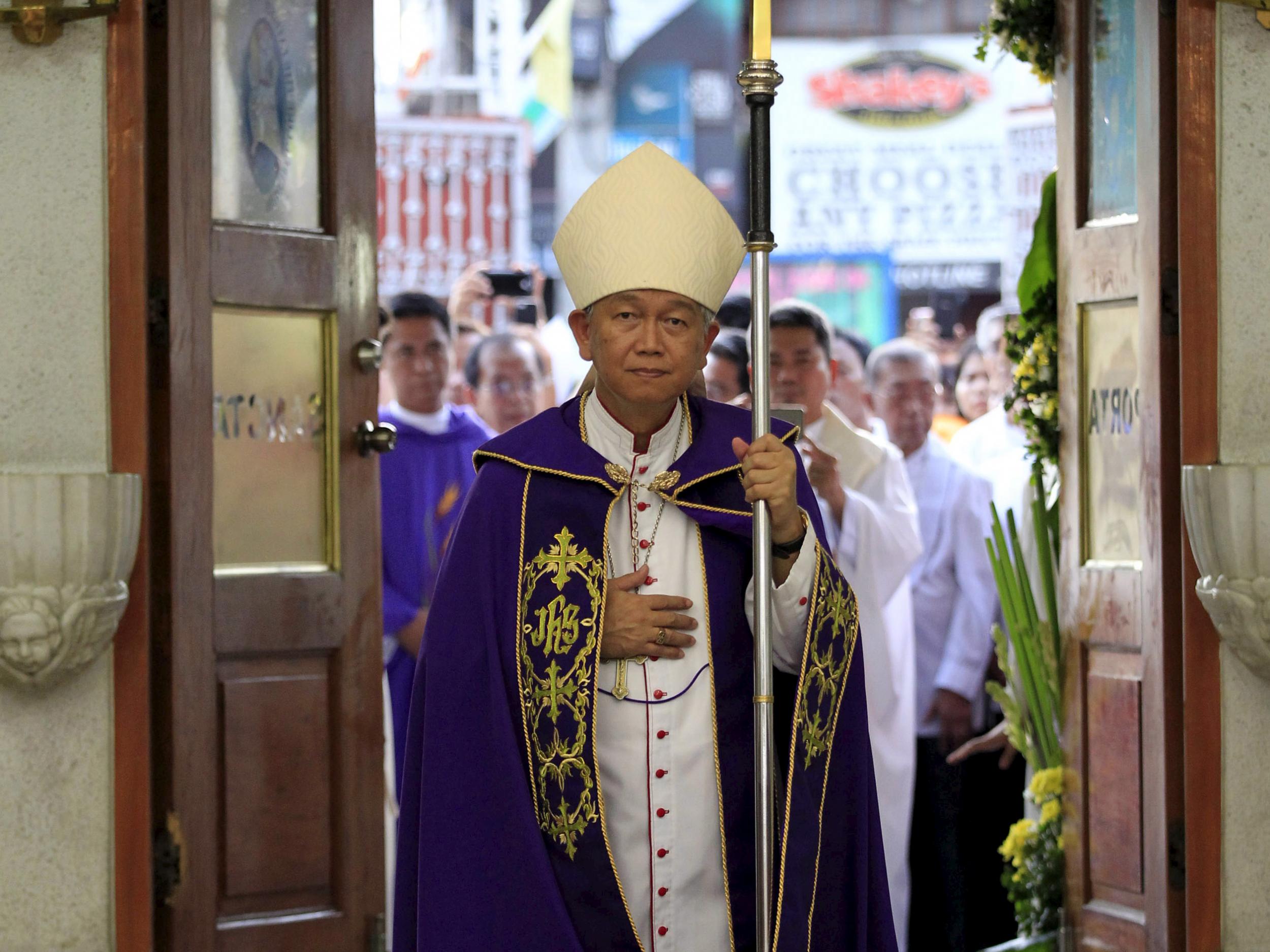Catholic church in Philippines decries ‘reign of terror’ caused by President Rodrigo Duterte’s war on drugs
‘Many are killed not because of drugs. Those who kill them are not brought to account’

Your support helps us to tell the story
From reproductive rights to climate change to Big Tech, The Independent is on the ground when the story is developing. Whether it's investigating the financials of Elon Musk's pro-Trump PAC or producing our latest documentary, 'The A Word', which shines a light on the American women fighting for reproductive rights, we know how important it is to parse out the facts from the messaging.
At such a critical moment in US history, we need reporters on the ground. Your donation allows us to keep sending journalists to speak to both sides of the story.
The Independent is trusted by Americans across the entire political spectrum. And unlike many other quality news outlets, we choose not to lock Americans out of our reporting and analysis with paywalls. We believe quality journalism should be available to everyone, paid for by those who can afford it.
Your support makes all the difference.Sermons at Catholic churches across the Philippines this weekend will denounce President Rodrigo Duterte’s war on drugs for creating a “reign of terror” among the poor.
Priests will read out a letter signed by the country’s bishops that says killing people is not the answer to trafficking of illegal drugs, voicing concern about the indifference shown by many to the bloodshed.
More than 7,600 deaths have been linked to Mr Duterte’s extreme crackdown on drug dealers and users since he became President last June. Around 2,500 of these took place in shootouts during raids and sting operations, police said.
The letter from the Catholic Bishop’s Conference of the Philippines said: “An additional cause of concern is the reign of terror in many places of the poor,” according to Reuters.
“Many are killed not because of drugs. Those who kill them are not brought to account.“
Both the government and police have strenuously denied that extrajudicial killings have taken place during the campaigns. The President’s office offered no immediate comment on the bishops’ letter.
The address, which will begin to be made at Mass services this evening, will not mention Mr Duterte by name, but will urge “elected politicians to serve the common good of the people and not their own interests” and call for steps to tackle “rogue policemen and corrupt judges”.
Nearly 80 per cent of the Philippines’ 100 million people are Catholic and the majority still practise their faith with enthusiasm.
While that support has historically given the Church significant political and social clout, it has been hesitant to criticise the outspoken President’s current war on drugs.
In interviews last year, more than a dozen clergymen said they were uncertain how to take a stand against the killings given the popular support Mr Duterte’s campaign enjoyed. Some said challenging him could be fraught with danger.
But in a recent speech, Broderick Pabillo, the Auxiliary Bishop of Manila, urged Catholics to speak out against the bloodshed.
“Can we now keep our mouths shut when more than 6,000 of our poor people are being killed on the mere pretext of drug trafficking?” he said, reported Rappler.
Mr Duterte has routinely attacked the Church. He cursed the Pope for causing traffic snarl-ups during his 2015 visit, and as recently as this week called for a “showdown” with priests whom he has accused of having wives, engaging in homosexual acts, misusing state funds and molesting children.
In an apparent reference to accusations that many drug pushers and users have been victims of extra-judicial killings, the bishops said in their pastoral letter “every person has a right to be presumed innocent until proven guilty” and the law should be followed.
“We must also give priority to reforming rogue policemen and corrupt judges,” the letter said. “We also call upon elected politicians to serve the common good of the people and not their own interests.”
The bishops’ letter comes less than a week after Duterte suspended all police operations in the drug crackdown due to what he said was deep-rooted corruption.
He has put an anti-drugs agency in charge of the campaign and says he wants the armed forces to play a supportive role.
Additional reporting from Reuters
Join our commenting forum
Join thought-provoking conversations, follow other Independent readers and see their replies
Comments